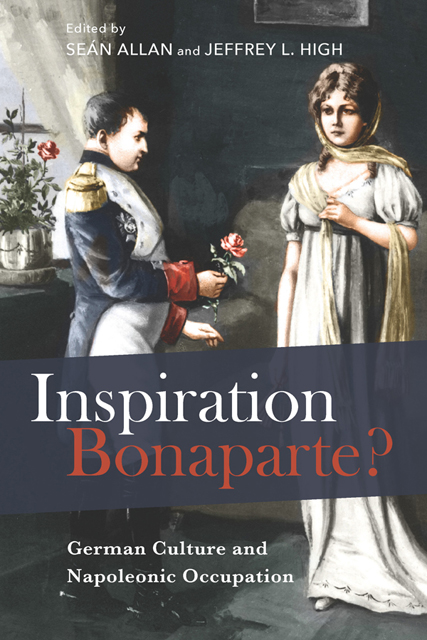5 - “Der große Schauspieler, Napoleon Buonaparte”: August von Kotzebue’s Antitheatrical Politics
Published online by Cambridge University Press: 04 January 2024
Summary
Recognized as one of the leading dramatists of his day and an immensely prolific writer, August von Kotzebue (1761–1819) has since fallen into relative obscurity. No doubt part of the reason for this is that the historiography of German literature came chiefly to be written by Kotzebue’s opponents in the German nationalist movements. As a result, Kotzebue has tended to be remembered, in the words of a leading contemporary historian, as a “reactionary publicist.” Kotzebue is probably best known today for the manner of his death—he was murdered in March 1819 by the radical nationalist Karl Ludwig Sand (1795–1820), which in turn provided the pretext for the repressive Carlsbad Decrees of September 1819 introduced by the Austrian Foreign Minister Klemens von Metternich (1773–1859). However, Kotzebue’s politics and aesthetics should be clearly distinguished from Metternich’s repressive conservatism. While Kotzebue is undoubtedly a conservative thinker, his commitment to unmasking the deception of both Napoleon and his nationalist opponents in the German states also makes him an heir of the moderate Enlightenment, despite his significant blind spots.
Kotzebue’s representation of Napoleon Bonaparte (1769–1821) was strongly colored by his allegiance to an apparently stable monarchical order that he wanted to defend and which served his own interests well. However, his image of Bonaparte was also shaped by his concern about the rise of a virulent nationalism that accompanied the Wars of Liberation (1807–15). While it would be hard to argue that Kotzebue’s anti-Napoleonic plays and journalism deserve canonical status, his analysis of the falsehoods of his age helps the modern observer understand what appeared to be at stake as Napoleonic power was on the wane.
As I will show, Kotzebue’s commitment to the satirical principle can be seen as an extension of his allegiance to the principles of Enlightenment, which also shape his political commitments. I argue that for Kotzebue satire served as a means of unmasking Napoleon’s self-aggrandisement in art, theatre, music, and popular festivals as well as in official media. Kotzebue’s writing increasingly revelled in the signs of vulnerability that appeared as Napoleon’s resounding victories gave way to wars of attrition in Spain and particularly Russia.
- Type
- Chapter
- Information
- Inspiration Bonaparte?German Culture and Napoleonic Occupation, pp. 119 - 136Publisher: Boydell & BrewerPrint publication year: 2021



